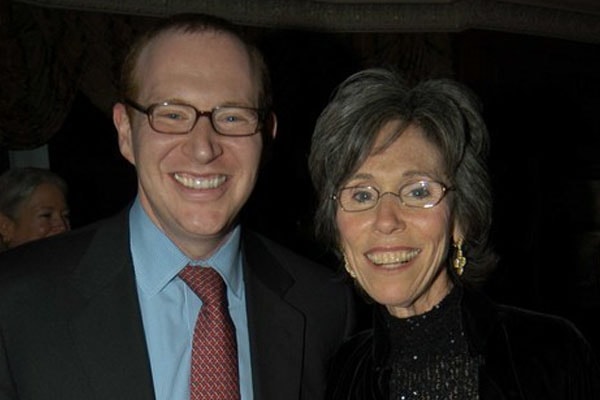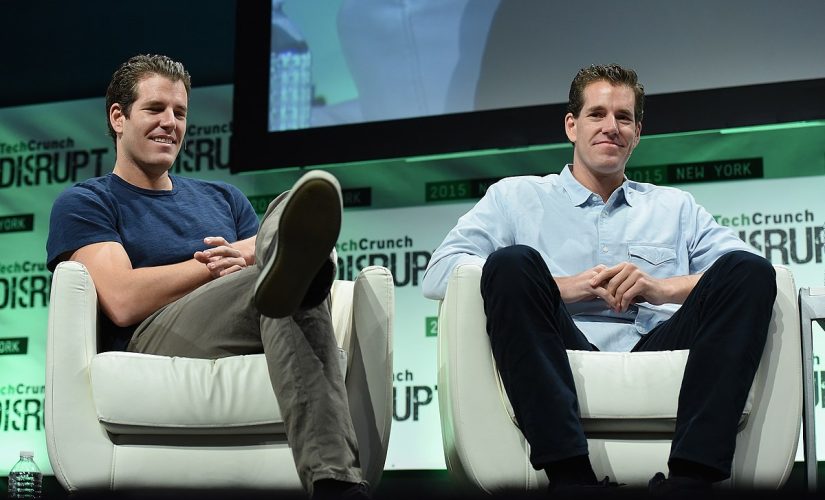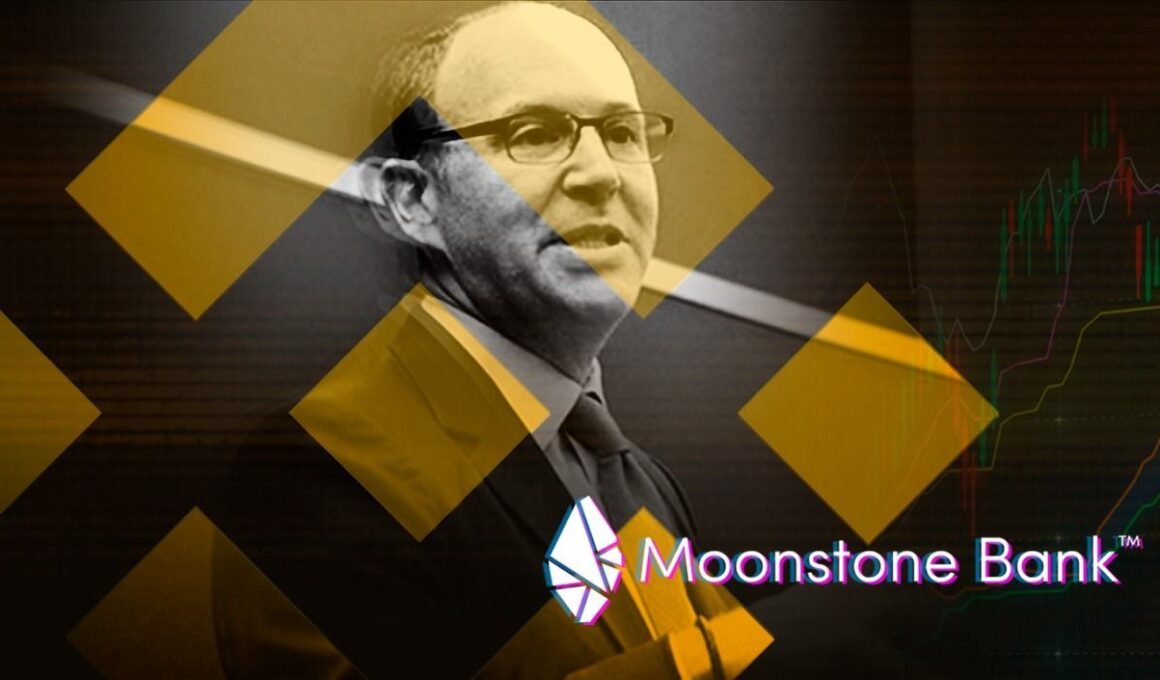The Department of Justice’s and Commodity Futures Trading Commission’s recent announcement of its $4.3 billion settlement with cryptocurrency exchange Binance has jolted the digital finance world and sparked rumors that the massive exchange could soon face collapse roughly one year after the implosion of another massive exchange, FTX. Those criminal cases, which charged Binance with money laundering and failing to report suspicious transactions tied to terror groups and entities under U.S. sanctions, placed considerable blame on Binance’s former Chief Compliance Officer, Samuel Lim. Lim, who left the company in 2022, was subsequently replaced with Noah Perlman.
In that role, Perlman has clearly been a crucial part of Binance’s attempts to navigate the US government investigations targeting the exchange, including its recent settlement with the DOJ and CFTC as well as the exchange’s ongoing litigation with the SEC. Now, with Binance’s long-time head Changpeng Zhao, or “CZ,” stepping down as part of the DOJ settlement, Perlman is one of the few executives who has chosen to stay on to steer the world’s largest crypto exchange into the post-CZ era.
In his current role, Perlman will have even more power to decide to whom to withhold or offer access to Binance’s services and if, like other exchanges and major players in the crypto market, Binance will collaborate even more closely with the DOJ in requiring KYC protocols as well as helping law enforcement to seize bitcoin and other digital currencies it deems connected to “illicit” financing (something Perlman has been doing since he joined Binance). Perlman is also poised to work closely, perhaps more than any other Binance executive, with the government compliance monitor to be appointed to oversee Binance as part of its settlement with the DOJ.
Despite his more critical-than-ever role at the world’s largest crypto exchange, there has been surprisingly little interest among the media in looking deeper into Perlman, who boasts connections to some of the more mysterious aspects of the FTX collapse, controversies at the Winklevoss-owned exchange Gemini, and even notorious sex trafficker and financial criminal Jeffrey Epstein.
A Lawyer with a Famous Father

Noah Perlman is the son of the famous violinist Itzhak Perlman and attended Harvard University, graduating in 1991. He went on to attend Columbia Law School and after graduating in 1997, joined the law firm Davis Polk & Wardwell, a white-shoe law firm in New York deeply tied to political and financial power in the U.S. (e.g., Federal Reserve chairman Jerome Powell is one of its many influential alumni). After working there and then as a law clerk in the Eastern District of New York, Perlman became a federal prosecutor for the Department of Justice, where he held posts such as Special Coordinator for Crimes against Children during his five-year stint with the DOJ.
Perlman’s role as Special Coordinator for Crimes against Children is notable given his father’s apparently close relationship with a notorious sex trafficker of minors, Jeffrey Epstein. Itzhak Perlman flew on Epstein’s plane at least twice, in 1992 and 1993, where he accompanied Epstein to Michigan’s Interlochen Center for the Arts. Epstein, who once attended the school on a scholarship at age 14, began donating heavily to the school in 1990 and continued to donate through 2003. At least one of those two known flights involved Epstein bringing Perlman to Interlochen for a performance. From 1989 through the mid-1990s, Perlman performed annually at Interlochen’s Arts Camp, according to the school’s website.
According to Tim Ambrose, former Vice president of Institutional Advancement at Interlochen, Epstein initially built his now infamous lodge at Interlochen, sometimes referred to in media reports as a “lair to target girls,” in order to facilitate Perlman’s stays at the school:
We did not have a suitable facility for Mr Perlman to stay at that was handicap-accessible [Perlman lost the normal use of his legs after contracting polio as a child]. Epstein said he was interested in helping build a place for people to stay when they are on campus.
I got an architect and had them draw some plans, but I got a call from Jeffrey and he said: ‘I don’t want that’. He said: ‘I want to build a log cabin and I want it all handicap accessible so when Mr Perlman comes he is comfortable. I want a walk-in tub, I want countertops that are handicap accessible’. So, I got an architect and we came up with something.
Epstein approved of the new design and sent a cheque for up to £313,000 (between US$300,000 and US$400,000 at the time) for it to be built.
Around the same time Perlman had traveled on his plane with him to Interlochen and construction on the cabin began, Epstein was already using his privileged status as a donor to gain access to, recruit and abuse young girls attending the school. Perlman’s address and three phone numbers are also listed in Epstein’s infamous black book.

Itzhak’s son Noah Perlman left his role as a federal prosecutor focused on crimes targeting children in 2004 and then became general counsel for the New York division of the Drug Enforcement Agency (DEA). After two years there, he joined Morgan Stanley, first as Global Head of Special Investigations and then as Global Head of Financial Crimes. There he focused on issues related to “money laundering and sanctions” and spoke publicly in 2018 about the need for better data “to track financial compliance” due to the spread of “populism and authoritarianism” and, in 2017, spoke of how much of his work at the time stood at the intersection of financial services and national security.
Joining the Crypto Industry
After years of straddling national security and Wall Street interests at Morgan Stanley, Perlman joined Gemini, the exchange co-founded by twins Tyler and Cameron Winklevoss, in September 2019. He served first as the company’s Chief Compliance Officer. According to Perlman, his actions at the exchange were guided by the Winklevoss’ “vision that compliance really could be a competitive advantage” and that the company has long been focused “on security, regulation, compliance.” In August 2020 and until his departure this January, Perlman was Gemini’s Chief Operating Officer.
Despite its somewhat cozy relationship with New York regulators, a lawsuit filed last month by New York Attorney General charged Gemini with engaging in a $1.1 billion fraud. The focus of that fraud, the Gemini Earn program, a partnership between Gemini and crypto lender Genesis, had involved Perlman considerably, per past reports. However, Perlman had departed Gemini several months before the recent lawsuit was filed and the Winklevoss twins had sued Genesis’ parent company DCG back in July, claiming that Genesis had misled them in the lead-up to the collapse of Gemini Earn. Gemini then sued Genesis itself in late October, shortly after the NYAG’s lawsuit was filed. Genesis has recently sued Gemini in an effort to claw back withdrawals related to Gemini Earn’s implosion last November, which subsequently resulted in Genesis filing for bankruptcy in January.

The Gemini Earn program ran into major problems with the collapse of FTX last year, with the program temporarily halting withdrawals due to fallout from FTX’s bankruptcy and later imploding entirely. It was later revealed that nearly 60% of Genesis’ loans were at one point tied to the FTX-linked hedge fund Alameda Research. However, well before FTX collapsed, Gemini knew internally that there were issues with Genesis and had downgraded “its own estimate of Genesis’ credit rating to a junk trade in February 2022,” even though it continued to promote Gemini Earn as “low-risk” until its collapse roughly nine months later. Genesis has also notably been investigated for its apparent role in the collapse of the Terra/Luna fraud in early 2022, a collapse in which Binance also played an interesting role. Binance would go on to play a similarly interesting role in the collapse of FTX several months later, likely part of what Sam Bankman-Fried had once referred to as the “second great stablecoin war” going on behind the scenes in the crypto industry.
The NY Attorney General’s lawsuit against Gemini notes that key Gemini risk management personnel knew that Genesis was financially unstable and pulled their personal money out of the Earn program well before its collapse. It specifically mentions that Gemini’s Chief Operating Officer “allegedly withdrew his entire investment of more than $100,000 from Earn on June 16 and 17 of last year.” Though the suit declined to name Gemini’s Chief Operating Officer, Perlman held that role at the time of the events detailed in the lawsuit.
Perlman’s exact role in Gemini Earn and in Gemini’s decision to partner with Genesis remains murky. Like Genesis, Perlman has his own unusual connections to aspects of the FTX scandal, including one of the most mysterious components of the FTX network – Farmington State Bank in rural Washington. In 2019, the same year that Perlman joined Gemini, Perlman was listed as a director of FBH Corp. in SEC filings alongside Jean Chalopin, the executive chairman of Deltec, the Bahamian bank that had been deeply tied to FTX and continues to be deeply tied to the controversial stablecoin Tether. FTX and Tether were also deeply connected before the exchange collapsed.

FBH Corp., soon after its incorporation, took over the miniscule and extremely rural Farmington State Bank, which soon adopted the name Moonstone Bank. Just days after the name change, Alameda Research bought a $11.5 million stake in the bank and FTX’s Sam Bankman-Fried allegedly poured $50 million into the bank in the months that followed under an account labeled “FTX Digital Markets.” Bankman-Fried’s deposits accounted for the vast majority of the $71 million in funds that were deposited into Farmington/Moonstone after the name change and up until the collapse of FTX in November 2022, which brought Farmington under heavy scrutiny.
Media reports published during and after the collapse of FTX noted that Farmington’s relationship with regulators in Washington State and the Federal Reserve system was both highly unusual and suspect, as the ties of Chalopin and Alameda to the bank should have raised numerous red flags for fiscal authorities. The Federal Reserve still refuses to comment “about the process that federal regulators undertook to approve Chalopin’s purchase of the charter of Farmington State Bank in 2020,” but filed an enforcement action against Farmington in August, just days after Farmington announced its plan to sell its deposits and assets to the Bank of Eastern Oregon and close down.
Perlman, who was also on Moonstone’s board in addition to being a director of FBH Corp., has yet to publicly comment on his connection to the small, rural bank that has emerged as a key component of the massive fraud tied to FTX. Perlman also never publicly listed or commented on his affiliation with Moonstone or FBH Corp.

As Unlimited Hangout reported last year, Moonstone, prior to the FTX scandal, was working with a very suspect stablecoin company called Fluent Finance to “accelerate adoption” of Fluent’s stablecoin US+. Fluent frames US+ as a regulation compliant dollar-backed stablecoin, a “trustworthy” Tether competitor. Its relationship with Farmington as well as Tether-connected entities like Deltec and FTX suggests that Moonstone/Farmington was poised to be a vehicle for Sam Bankman-Fried in the “great stablecoin war,” had FTX not collapsed in such spectacular fashion.
The Compliance Crackdown Cometh
Not long after the FTX scandal and also after his role at Moonstone/Farmington was publicly (though quietly) disclosed, Perlman became head of Binance’s compliance team in January. Around that same time, Binance brought on Kristen Hecht to become its Global Head of Corporate Compliance. Hecht formerly worked for the US Treasury Department in financial crime compliance and then for HSBC China and a Facebook/Meta-owned digital asset wallet company. Perlman, in his role at Binance, has spent the past year overseeing Binance’s relationship with global law enforcement and its Know Your Customer (KYC) protocols. He also oversaw Binance’s decision to cease operations in Russia, a decision most likely motivated by US government lawsuits against the exchange, including those which were recently settled, as they targeted Binance chiefly for failing to block transactions in countries or with companies/entities/people under US sanctions.
Now, in the wake of the Binance-DOJ settlement, Perlman is poised to do more of the same and steer the world’s largest crypto exchange into an era of unprecedented compliance. While this obviously has clear implications for Binance moving forward, it also has important implications for Binance’s troves of customer data from past transactions. As Perlman had stated while at Morgan Stanley, better data leads to increased financial compliance, and now the US Treasury Department will have access to all of Binance’s current, future and past records going forward. This will invariably be used to track past “suspicious” transactions to spur a new round of retroactive DOJ crypto seizures and civil asset forfeitures in the months leading up to the next bitcoin halving and an anticipated major crypto bull run in 2024. Perlman, a DOJ veteran, will most likely be more than happy to help his former employer in this endeavor.
While all attention has recently been focused on the Binance-DOJ settlement, few are seeing the big picture of what that settlement and a post-CZ Binance means, not just for the crypto space, but the future of financial privacy. Just as the settlement was announced, USDT stablecoin issuer Tether announced that it had “recently onboarded” the Secret Service to its platform and are working with the FBI to do the same. With other major players in the crypto space looking to bend over backward for the US government (if they weren’t already) in the name of compliance, the DOJ-FBI have an even greater ability to seize crypto holdings deemed to be “uncompliant” whenever they see fit. DOJ seizures of bitcoin prior to the settlement with Binance are estimated at 205,515 bitcoin (nearly $7.6 billion at the time of this article’s publication) which makes the DOJ one of the largest holders of bitcoin in the world.
This is significant as the DOJ, FBI and Secret Service are all major, active members of the World Economic Forum Partnership Against Cybercrime (WEF-PAC), a public-private partnership of law enforcement, commercial banks and intelligence-linked tech companies that are openly planning to erode both financial and online privacy in the name of greater centralized control over the online flow of money and information. As previously reported, WEF-PAC, which is led by a career intelligence agent, anticipates a major cyberattack on the financial system before 2025 and has spent years developing systems and architecture for an internet and a financial system completely devoid of anonymity or privacy – “solutions” that would conveniently be in high demand should the anticipated cyberattack unfold. WEF-PAC also sees bitcoin, including the value of bitcoin and the use of privacy-enhancing tools in bitcoin transactions, as a threat to its policy plans and has floated the idea that manipulating the price of bitcoin could help it and its members achieve their policy goals related to financial privacy. Thus, the DOJ’s significant bitcoin holdings take on new meaning in this context.

While framed as necessary to stop a litany of crimes – from child abuse to money laundering – the obvious problem, with members like the DOJ and FBI, is that many of WEF-PAC’s members have committed those same crimes and routinely protect powerful people who also commit those same crimes on scales much, much larger than those they do prosecute. Jeffrey Epstein is one obvious and well-known example of what amounts to a mafia protection racket masquerading as law enforcement.
Noah Perlman is a symptom of this larger problem. He is not in charge of compliance with the law as written, as his past associations/behavior with Gemini Earn and Farmington show that he is very willing to not comply with the law if it benefits him. Instead, he is in charge of compliance with the financial mafia that runs commercial and central banks. While the Binance settlement has been heralded as “bullish” for crypto, it is hardly a thing to celebrate. Binance most certainly engaged in money laundering and illicit financial activity, but those crimes are dwarfed by those overseen or protected by the DOJ, FBI and American intelligence agencies. By giving the biggest criminals in the game greater control over the digital currency space, we inch closer and closer to the end of financial privacy and surveillable, programmable money – an end-game that gravely threatens not just financial freedom, but human freedom.








